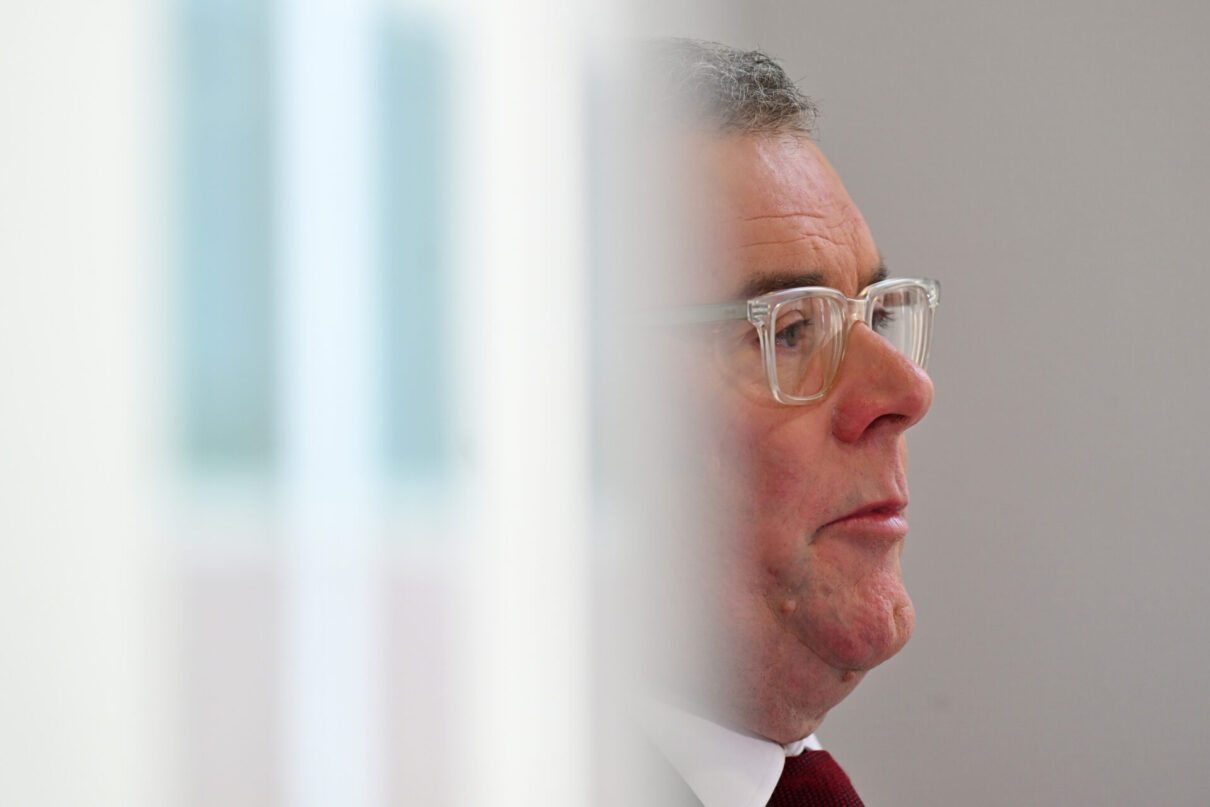This shocking deal is a gross betrayal of millions of voters

I’ve been lucky enough to complete a few multi-day hikes overseas in the past few years. Every morning, I woke up in my tent with the feeling that something wasn’t quite right and then I realised why – it was practically silent.
There’s no cackle of kookaburras at dawn, no warble of magpies, or comforting screeches of cockatoos. Songbirds the world over had their evolutionary origins right here in Australia, but we’ve got the original and the best (and the loudest).
As a giant island, Australia is a hotspot for biodiversity. We are home to countless plant and animal species found nowhere else on Earth, thanks to millions of years of evolution in isolation.
Overall, Australia’s nature laws have done a crap job of protecting them. Unfortunately, Environment Minister Murray Watt looks set to continue that track record, with news he’ll be negotiating to pass an overhaul of Australia’s nature laws with the Coalition, not the Greens. That pretty much tells you everything you need to know.
There will be plenty of talk about national environment standards, climate triggers and other policy jargon over the next month or so, but it’s really simple: nature laws that don’t stop new gas and coal projects are as useless as a screen door on a submarine.
Watt’s talks with the Coalition are being sold as pragmatic and bipartisan.
In reality, they prove Labor doesn’t give a stuff about protecting nature. The government is choosing to negotiate with the Coalition, which famously dubbed efforts to enforce Australia’s environment laws as “lawfare”. Australian voters have now elected a climate super-majority to Parliament two elections in a row, delivering the Greens the balance of power in the Senate and dozens of climate-focused independents to the crossbench.
By negotiating with the Coalition, Labor is not only demonstrating its indifference for nature, but its contempt for the millions of Labor, Greens and teal-independent voters who want polluting projects rejected, and Australia’s forests, rivers, deserts and oceans – and the creatures that live in them – protected.
Murray Watt has held numerous stakeholder meetings and is said to be close to a deal with the Coalition. It’s “unlikely” the government will include a climate trigger in the new legislation – a mechanism that would allow projects to be blocked if they significantly worsen emissions.
In other words, the laws that are supposed to protect our environment still won’t take climate change into account in a meaningful way. It’s like writing fire-safety laws that don’t mention smoke detectors.
This omission flies in the face of the government’s own National Climate Risk Assessment, released just weeks ago, which warns that climate change is already driving “cascading and compounding” risks across ecosystems, infrastructure and human health. It identifies biodiversity collapse as one of the biggest threats facing Australia.
Yet when it comes to environmental reform, it seems Labor will treat climate as entirely separate problem.
But perhaps it’s not surprising. After all, this is the same government that rushed through emergency legislation to shield the salmon industry. Scientific advice said the endangered Maugean skate was at risk of extinction, due in large part to large-scale salmon farming in Tasmania’s Macquarie Harbour. But as the industry was finally set to be caught in the net of existing environment laws, the Prime Minister intervened to weaken them. In less than 48 hours, with Coalition support, Labor rewrote environmental protections to save a polluting industry, not a dying species.
The truth is, Australia desperately needs environment laws that genuinely protect the environment. An independent review found the current Environment Protection and Biodiversity Conservation Act “is not fit to manage current or future environmental challenges, particularly in light of climate change.” But there’s not much point passing new laws if the Prime Minister simply changes them whenever his favoured industries fall foul of them.
Australia has one of the highest extinction rates on Earth. Logging, land clearing, invasive species, and climate change are accelerating the decline. The Black Summer bushfires alone killed or displaced an estimated 3 billion animals.
Alongside Indonesia, Australia has the largest number of endemic species – plants and animals found nowhere else on Earth, and, according to the Australian Academy of Science, “We have one of the worst records of species extinctions of any continent, with nearly 50 per cent of the world’s known and historically recorded mammal extinctions.”
It’s no wonder.
Native-forest logging – one of the most destructive industries for wildlife – has been exempt from national environment laws under Regional Forest Agreements. Just one of the many ways our existing laws are broken. The Environment Minister recently approved the massively polluting North West Shelf gas export project for another 45 years – increasing our greenhouse-gas emissions – just one of dozens of polluting projects signed off by this Labor government. Watt imposed “strict conditions” on Woodside’s emissions, but they’re not worth the paper they’re written on because they’re unlikely be enforced in any meaningful way.
Just look at Chevron’s Gorgon gas field, approved on the condition it would capture 80 per cent of its CO emissions and store them underground. In reality, it captures only about 30 per cent. Was Chevron fined or shut down? Of course not – the WA government simply weakened the conditions to match Chevron’s failure.
Labor could end native-forest logging tomorrow if it chose to. It could announce a moratorium on new fossil-fuel projects and have legislation before Parliament within weeks. But nature does not have the kind of political connections enjoyed by the salmon or gas industries.
Aboriginal people have been custodians of the land for tens of thousands of years, but now our natural world is disappearing before our very eyes. Our environment laws should help us preserve it for future generations.
But if Labor uses the Coalition to pass environment laws that ignore climate change, protect polluters and silence science, it is us, and our iconic species, that will pay the ultimate price.
This article was originally published in The Canberra Times
Between the Lines Newsletter
The biggest stories and the best analysis from the team at the Australia Institute, delivered to your inbox every fortnight.
You might also like
Full preferential voting means you can’t waste your vote
Full preferential voting is a proud Coalition reform – one that benefits every political persuasion Compulsory voting and full preferential voting make up the backbone of Australian democracy, and protect us from voter suppression and disengagement seen in other countries. We owe both to the parties of the centre-right, what would become the Liberal–National Coalition.
The rise of early voting in Australian elections
Are voters missing out on more than their democracy sausage?
Election entrée: Early voting in Australia
A cornerstone of the Australian election experience is tucking into a democracy sausage after casting your ballot on election day.


